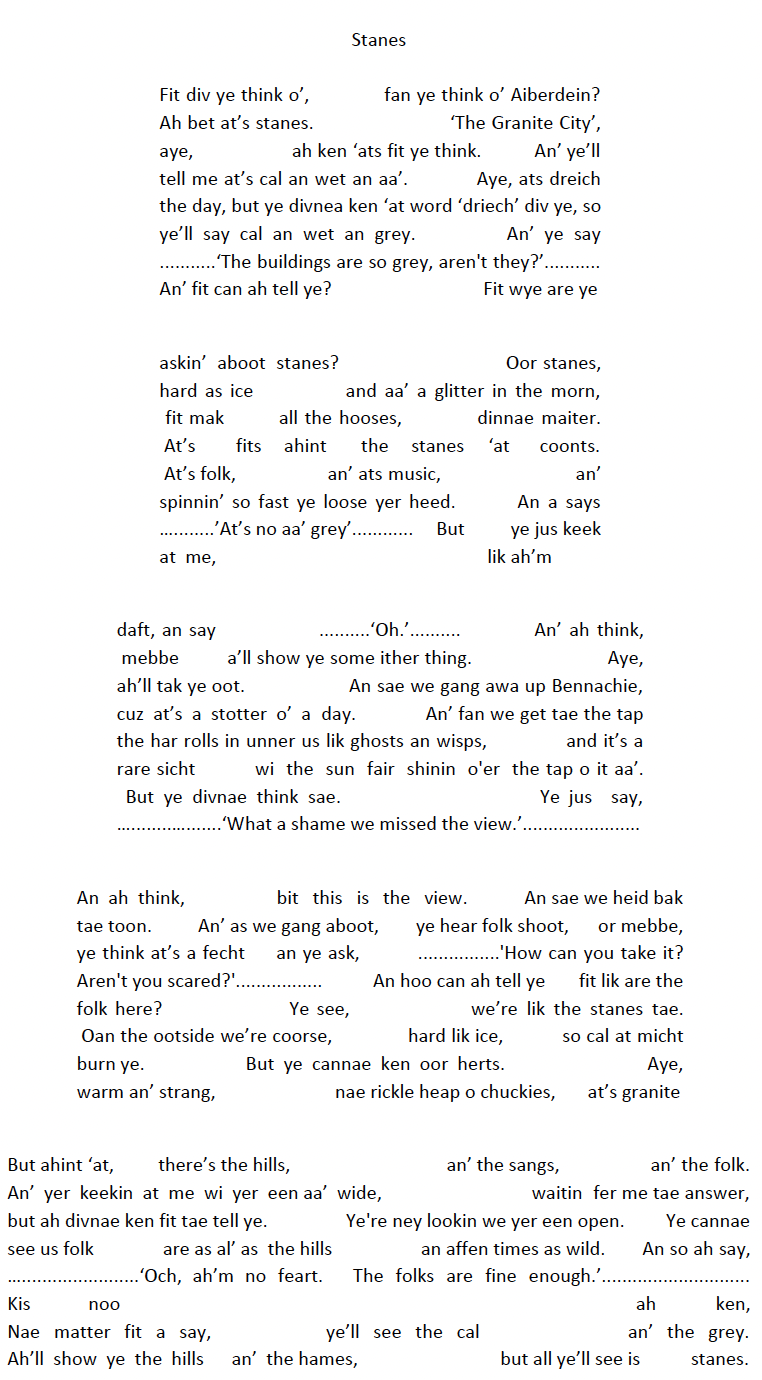Runner-Up for the 2023 Sloan Prize
Suzy Enoch is a Scottish writer and actress who grew up in Aberdeen. After spending many years writing for stage and screen, she is currently completing the Creative Writing Masters in Edinburgh Uni. Stanes is her first foray into writing in Scots, and she is very excited to put the sounds of her hometown, Doric, onto the page.

Suzanne says: Growing up in Newmachar, a little village just north of Aberdeen, I was surrounded by Doric for all of my childhood. When visiting relations in England, I often had to temper how I spoke, and when I moved to London as an adult, my voice became completely anglicised. Folk would often be surprised when I told them I was Scottish at which point I, obviously, launched into torrent of broad, indecipherable Scots.‘Stanes’ is my first experience of writing in Doric and was initially far more challenging than I expected. Since Doric has, for me at least, always been an oral language, writing it down at a slow process. Fairly often I used a Scots dictionaries to try to understand if there is an etiquette as to how Doric words are written, but often dictionary answers just further muddied the waters. There is no clear answer – different dictionaries give different spellings, and sometimes different meanings. The fact is that Doric is still very much alive, and there are many elements of the dialect, the word ‘do’, for example, which can be pronounced both ‘dae’ and ‘div’, which change their pronunciation depending on where in the speaker comes from. To ‘dae’, or to ‘div’, now that’s the question. In situations like this, I have simply used the pronunciation that is personal to me, the one which naturally pops into my head, and spelt the word accordingly. I have to admit, the fact that written Doric language is still able to reflect the rich regional variation of vocabulary and pronunciations is, to me, nothing short of magic.
Suzanne Enoch: Stanes / Writing Prizes by blogadmin is licensed under a Creative Commons Attribution CC BY 3.0



